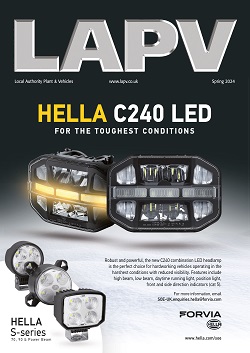Euro NCAP and Thatcham Research are urging van manufacturers to fit more collision avoidance technology to their vehicles as standard after tests for a new Commercial Van Safety Rating revealed alarming results.
 Out of 19 vans tested – representing 98% of new van sales in 2019 – the Renault Master, Nissan NV400, Renault Trafic, Vauxhall Movano and Fiat Talento all emerged with a ‘Not Recommended’ rating.
Out of 19 vans tested – representing 98% of new van sales in 2019 – the Renault Master, Nissan NV400, Renault Trafic, Vauxhall Movano and Fiat Talento all emerged with a ‘Not Recommended’ rating.
Only Volkswagen’s Transporter, the Ford Transit, and the Mercedes-Benz Vito were awarded a ‘Gold’ rating. Five others were rated ‘Silver’ and six ‘Bronze’.
Matthew Avery, Thatcham Research director of research, said: ‘This first batch of test results show the fitment of crucial safety technology on vans is woefully low. It’s a serious issue that needs addressing urgently, particularly with van numbers increasing and the continued surge in demand for home deliveries during the pandemic and before Christmas.’
Data from 2018 showed vans were involved in more accidents that resulted in fatal injuries to other road users, per mile travelled, than any other type of vehicle on the UK’s roads. Between 2013 and 2018, collisions involving vans were responsible for a 14% increase in the number of serious injuries to pedestrians, car occupants, and van occupants. Cyclist casualties also rose by 22%.
The research revealed that only 12.8% of new vans were fitted with Autonomous Emergency Braking (AEB) technology as standard in 2019, compared to 62% of new cars.
To highlight the extent of the problem and encourage wider fitment of ADAS technology, Euro NCAP and Thatcham Research have launched a new Commercial Van Safety Rating that assesses the performance and fitment of emergency braking, speed limiter, and lane support systems, as well as seat belt reminder technology. Safety tests will be conducted annually.
In the first batch of tests, only VW’s Transporter with a performance score of 65%, Ford’s Transit (63%) and Mercedes-Benz’s Vito (61%) earned a ‘Gold’ rating. Both the VW and Mercedes models are fitted with AEB as standard in the UK, proving lifesaving tech doesn’t always have to be a cost option.
Five other vans were rated ‘Silver’, and six were ‘Bronze’.
The Renault Master (16%), Nissan NV400 (12%), Renault Trafic (11%), Vauxhall Movano (7%) and Fiat Talento (5%) performed so badly they were given a ‘Not Recommended’ rating.
‘These findings show vehicle manufacturers are withholding critical safety technology from their vans. It’s a ridiculous situation because the systems already exist and could be fitted if they wanted them to be,’ Mr Avery added.
New General Safety Regulation (GSR) legislation will require all new vans to be fitted with certain ADAS technology by 2024.
Simon Turner, campaign manager for Driving for Better Business, commented: ‘The wide fitment of AEB and other ADAS technology to vans could be a massive step forward in road safety however, with most vans being procured on cost alone, fleet operators who don’t demand this technology may well be missing out on the potentially huge associated business benefits.
‘Time and time again, van fleet operators tell us their biggest concerns are the business disruption caused when vans are off the road for repairs, and the rising cost of insuring their vans – often a direct result of their collision record.
‘ADAS technology fitted to cars has been proven to significantly reduce collisions, repair costs and third-party claims. Firms that purchase or lease vans should now be looking for these same benefits and specifying this technology on all their new vehicles.’

